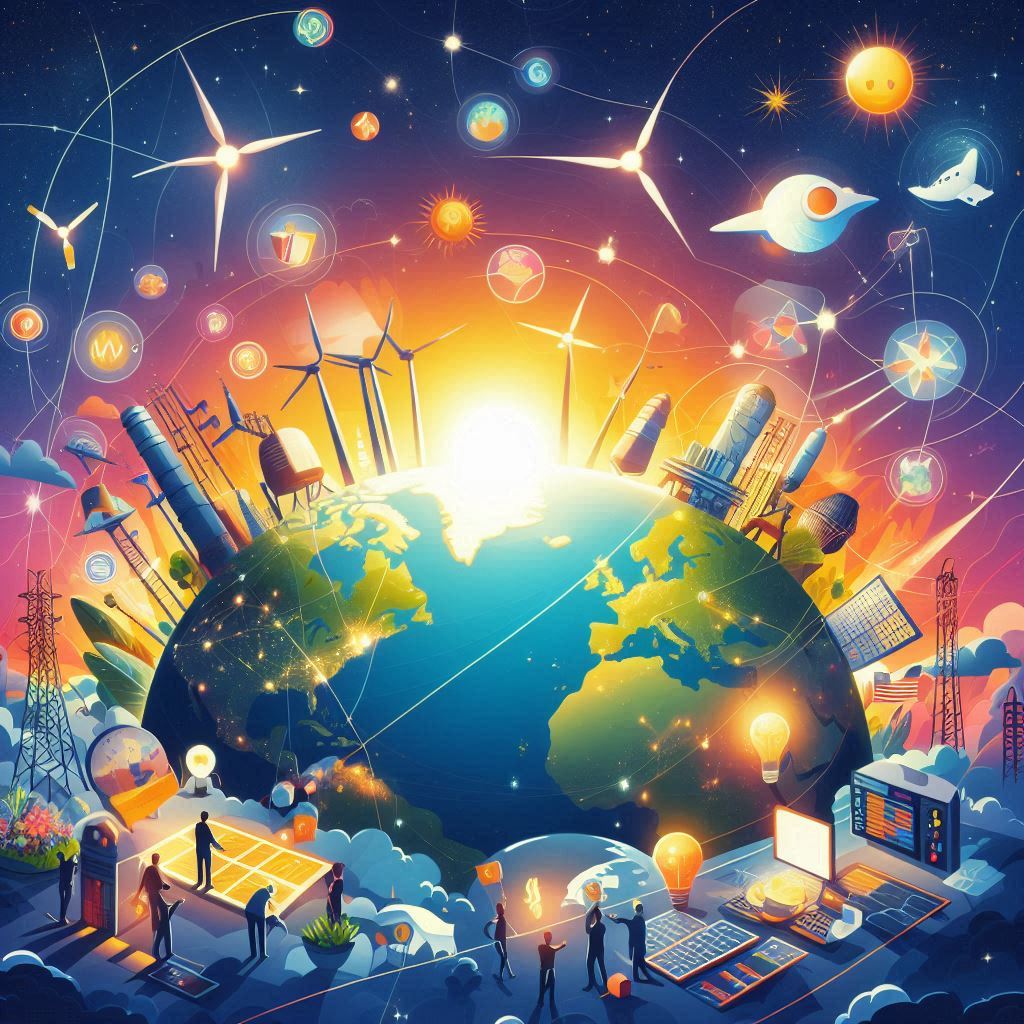烏克蘭停止從俄羅斯輸送天然氣到歐洲國家的後續影響
烏克蘭停止從俄羅斯輸送天然氣到歐洲國家的舉動將對俄烏戰爭、俄羅斯、歐洲各國以及全球能源市場帶來深遠的影響。以下是一些主要影響的分析:
1. 對烏克蘭的影響
•戰略籌碼增強:烏克蘭作為天然氣輸送的主要過境國,此舉切斷俄羅斯重要的能源出口路徑,給予其在國際談判和地緣政治中更大的籌碼。
•經濟壓力:停止天然氣輸送可能導致烏克蘭失去過境費收入,加劇其因戰爭而惡化的經濟困境。
• 對抗俄羅斯的策略支持:此舉可能得到西方國家的支持,因為它削弱俄羅斯對歐洲的能源影響力,增強烏克蘭在戰爭中的盟友支持力度。
2. 對俄羅斯的影響
• 能源出口受限:俄羅斯依賴天然氣出口來支撐其經濟,尤其是在被制裁限制後,能源是其少數外匯來源之一。管道中斷將進一步削弱俄羅斯的經濟實力。
• 政治影響力減弱:天然氣一直是俄羅斯對歐洲施加影響的重要工具,輸送中斷可能削弱其在歐洲的談判地位。• 尋求替代市場困難:雖然俄羅斯可能加強對中國和其他亞洲國家的能源出口,但這需要時間和基礎設施的投資,短期內難以彌補損失。
• 軍事壓力增大:經濟受損可能進而限制俄羅斯在戰爭中的資金支持,加劇其內部壓力。
3. 對歐洲國家的影響
• 能源短缺與價格上漲:俄羅斯是歐洲最大的天然氣供應國,天然氣中斷可能導致供應短缺和價格飆升,尤其是在冬季用氣高峰期。
• 能源轉型加速:該事件可能促使歐洲國家加快能源多元化和可再生能源轉型,包括投資液化天然氣(LNG)設施以及從中東、北非等地尋求替代供應。
• 經濟衝擊:能源價格飆升會推高通貨膨脹,削弱歐洲經濟復蘇的勢頭,尤其對德國和中歐國家影響更為明顯。
• 團結與分歧:能源危機可能促使歐盟成員國在應對俄羅斯問題上更加團結,但也可能因為能源分配問題引發內部矛盾。
4. 對戰爭的影響
• 對俄羅斯的壓力增加:能源輸送中斷削弱俄羅斯的經濟資源,限制其繼續支持戰爭的能力。
• 國際支持烏克蘭:烏克蘭的此舉動可能被視為對俄羅斯制裁的配合,可能吸引更多國際援助。
• 戰爭升級風險:俄羅斯將此舉視為對其主權和利益的直接威脅,從而升級軍事行動以施壓烏克蘭或西方國家。
5. 全球影響
• 能源市場波動:全球天然氣價格可能因歐洲需求上升而進而飆升,對全球經濟造成影響,尤其是依賴能源進口的國家。
• 地緣政治重塑:能源供應鏈的重組會導致中東、非洲和美洲能源出口國的影響力增加,全球能源地圖改變。
• 美國的角色:美國作為液化天然氣供應大國,企圖通過向歐洲提供更多能源,增強其地緣政治影響力。
烏克蘭停止俄羅斯天然氣輸送是複雜的地緣政治博弈,其影響不僅限於俄羅斯與歐洲,還將波及全球經濟與能源市場。短期內,這可能導致能源價格的進而波動和歐洲能源危機,但也會加速能源結構轉型和西方對俄施壓的效果。在長期角度看,此事件可能成為改變全球能源秩序的關鍵轉折點。
Ukraine Halts Russian Gas Transit to Europe: Analysis of the Far-Reaching Impacts
Ukraine’s decision to stop the transit of Russian natural gas to European countries will have profound implications for the Russia-Ukraine war, Russia itself, European nations, and the global energy market. Below is an analysis of the key impacts:
1. Impact on Ukraine
Enhanced Strategic Leverage: As a major transit country for natural gas, Ukraine’s move cuts off a critical energy export route for Russia, granting Ukraine greater leverage in international negotiations and geopolitical dynamics.
Economic Pressure: Halting gas transit may result in a loss of transit fee revenues, exacerbating Ukraine's already fragile economy strained by war.
Support for Anti-Russian Strategies: This action is likely to gain backing from Western nations, as it undermines Russia’s energy influence in Europe and strengthens Ukraine’s position in the conflict.
2. Impact on Russia
Restricted Energy Exports: Russia’s economy heavily relies on energy exports, especially after facing sanctions. Disruption of gas transit further undermines its economic stability.
Diminished Political Influence: Natural gas has been a crucial tool for Russia to exert influence over Europe. The transit halt weakens its bargaining power with European countries.
Challenges in Finding Alternative Markets: While Russia may seek to increase energy exports to China and other Asian markets, this requires time and significant infrastructure investments, leaving short-term losses unrecovered.
Increased Military Pressure: Economic damage may limit Russia’s ability to finance its war efforts, heightening domestic and international pressure on the Kremlin.
3. Impact on European Nations
Energy Shortages and Price Hikes: As Europe’s largest natural gas supplier, the disruption of Russian gas may lead to shortages and soaring prices, particularly during winter peak demand.
Accelerated Energy Transition: The crisis may prompt European countries to diversify energy sources and transition to renewable energy, including investing in liquefied natural gas (LNG) infrastructure and sourcing from regions like the Middle East and North Africa.
Economic Repercussions: Rising energy prices will drive inflation and hamper Europe’s economic recovery, with Germany and Central European countries being most affected.
Unity and Division: While the crisis could foster greater EU unity in addressing Russian aggression, it may also lead to internal disagreements over energy allocation and policy.
4. Impact on the War
Increased Pressure on Russia: The halt in energy transit will further strain Russia’s economic resources, limiting its ability to sustain the war.
International Support for Ukraine: Ukraine’s action may be viewed as complementary to sanctions against Russia, potentially attracting greater international aid.
Risk of Escalation: Russia could perceive this move as a direct threat to its sovereignty and interests, potentially escalating military actions against Ukraine or Western nations.
5. Global Impact
Energy Market Volatility: Global natural gas prices are likely to surge as European demand increases, impacting economies worldwide, particularly energy-importing nations.
Geopolitical Shifts: The restructuring of energy supply chains may enhance the influence of energy-exporting nations in the Middle East, Africa, and the Americas, reshaping the global energy landscape.
The Role of the United States: As a leading LNG supplier, the U.S. may seek to strengthen its geopolitical influence by increasing energy exports to Europe.
Conclusion
Ukraine’s decision to halt Russian gas transit represents a complex geopolitical maneuver with ramifications extending far beyond Russia and Europe. In the short term, it may trigger energy price volatility and a European energy crisis. However, it could also accelerate the transition to diversified and renewable energy sources while intensifying Western pressure on Russia.
In the long term, this event could serve as a pivotal turning point in reshaping global energy dynamics, altering the balance of power in the energy market and geopolitics.


照片:DALLE3
- 1
- 2
- 3
- 4
